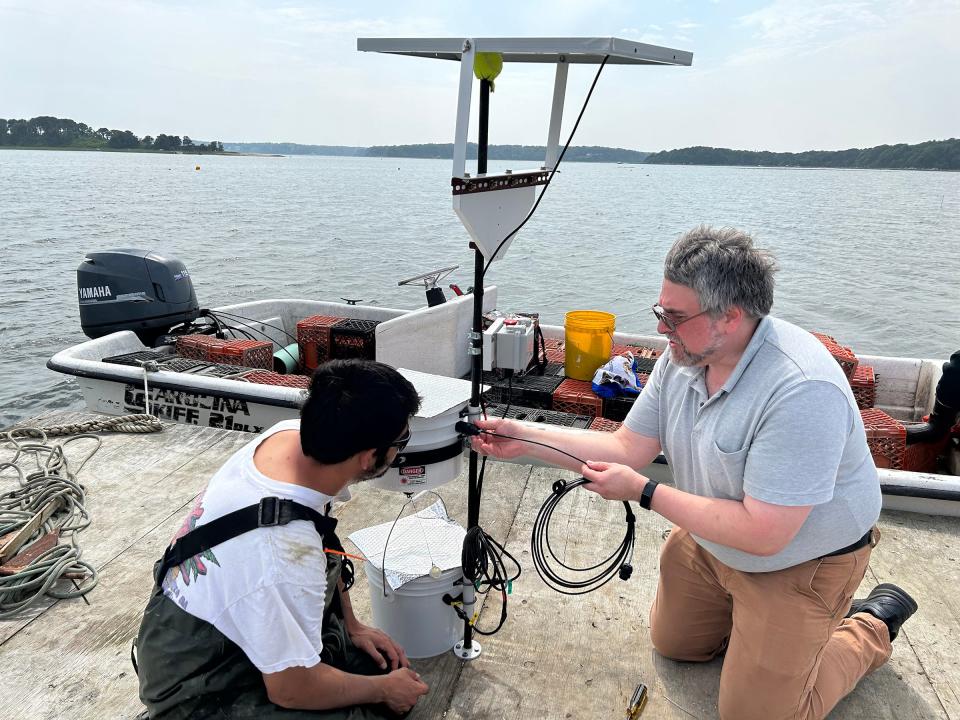Little Compton 'crop cannon' blasts rile neighbors. Are laser scarecrows the answer?
LITTLE COMPTON – The rights of farmers to grow corn and the rights of residents not to hear cannon blasts have been debated at recent Town Council meetings.
Farmer Ian Walker employs this method to deter birds from his crops. He and other farmers have said the town’s Right to Farm status allows such a method. But Town Council members and state officials say there is a noise ordinance in town and the blasts during the growing season are unbearable for residents near the farm.
Councilman Gary Mataronas said at the Oct. 19 council meeting that he had conducted informal research and counted 32 blasts in 30 minutes during one visit and 28 during another visit.
Mataronas, a fisherman, said he understands the plight of the farmer but can also understand that residents do not want to hear cannon blasts, especially with a noise ordinance in place.
“Keep growing the corn because we all want that, but we don’t want the nuisance that is associated with it,” Mataronas said at the Oct. 19 meeting.
“It’s a sticky situation but it has to get resolved somehow,” he added. “We don’t want to shut Ian down or say ‘you’re breaking the law' or breaking the ordinance. … If there is a solution to it, let’s find a solution to it.”
What can be done to limit or replace cannons?
In early October, a working group of state and local officials, as well as farmers, convened to begin looking into solutions.
Along with Mataronas, the group consists of council president Bob Mushen, state Sen. Louis DiPalma, Tyler Young of Young Family Farm, and Rhode Island Department of Environmental Management officials Terry Gray, Ken Ayars and Ryan Mulcahey.
The group is exploring other deterrents that might either limit or replace the cannon use.
Mushen said the council is also reviewing all ordinances and expressed confidence this problem will not persist for neighbors of areas with cannon blasts.
“It may be monetary, and if it is monetary, we are intent on finding (funds). There seems to be an abundance of state and federal money to procure some of these technologies,” Mushen said.
Mushen said that in this post-COVID era, there should be funds available to explore other technologies.
'Laser scarecrow' developed by URI professor

Mataronas, speaking Oct. 19 with a resident in the audience, expressed interest in laser technology and working with University of Rhode Island researcher Rebecca Brown.
According to written releases from the university, Brown has developed a “laser scarecrow” that has successfully kept birds away from commercial corn fields throughout Rhode Island.
Mataronas said birds defecate near mussel farming areas and this "laser scarecrow” is now being taken off land.
“It’s not only a land issue but it’s on water,” he said.
In fact, according to a news release, Brown just received a grant of nearly $30,000 to apply this laser technology to aquaculture areas.
This article originally appeared on The Providence Journal: Crop cannons annoy Little Compton neighbors; group seeks alternatives

